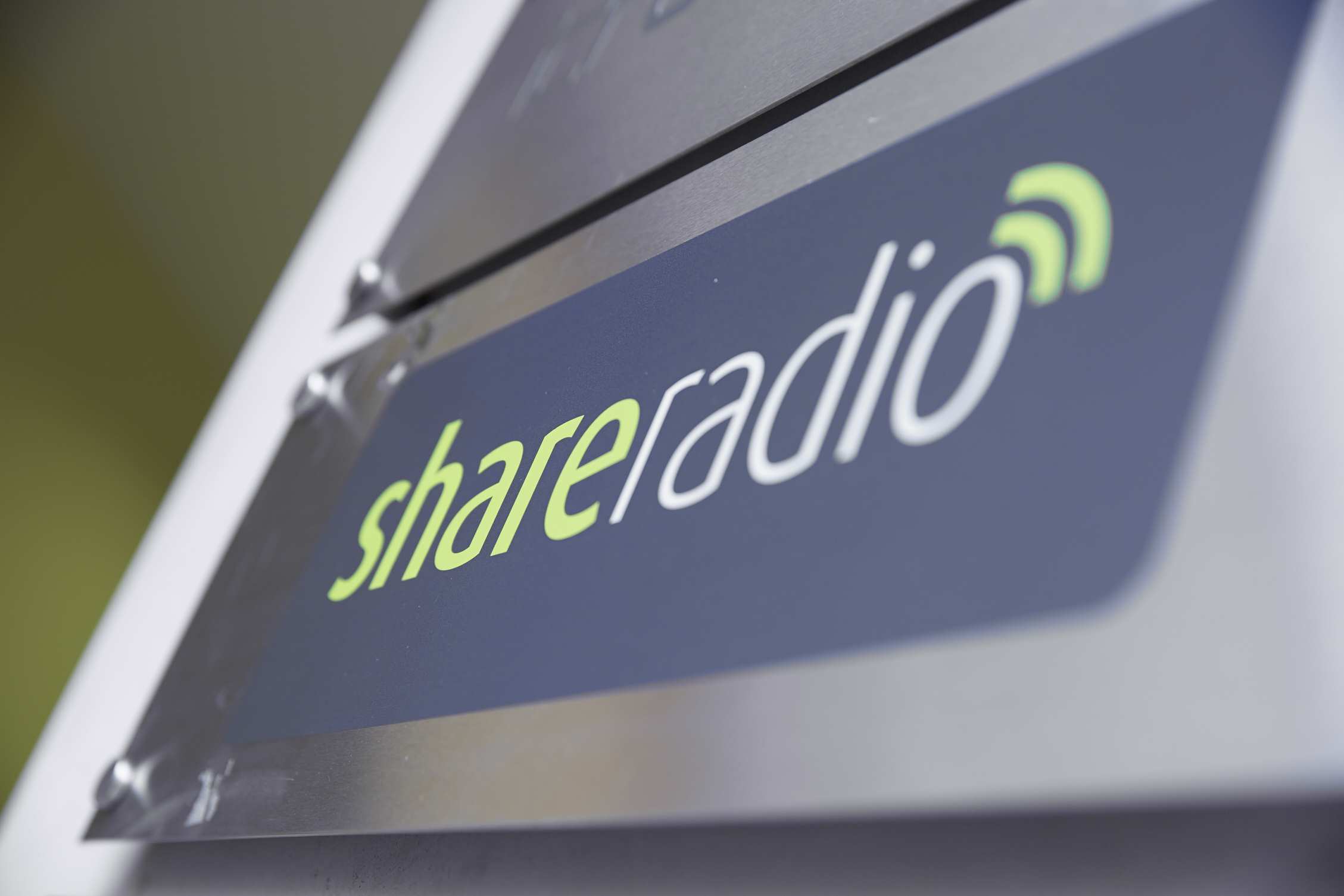
Our CEO Jennie Williams chats about undressing disability, and disability it the workplace. Click to read more…

Our CEO Jennie Williams chats about undressing disability, and disability it the workplace. Click to read more…

Alice is a French speaker from Belgium, for twenty years she’s lived with syringomyelia. Click to read more about her thoughts on seeing peoples potential, able-bodied or not.

I have different songs which shall be forever be associated with different points in my life. Songs that feel like they were written specifically for me.

Fatigue is misleading, people take it to mean I’m tired – I feel like I’ve physically run a marathon. Click to read more of Gavin’s story…
INTERVIEWING A DEAF PERSON FOR A JOB? HERE ARE SOME HELPFUL TIPS
• Don’t spend half the allocated time showing your fingerspelling skills that you learnt from a deaf girl at school when you were seven…. Yes this really does happen and the fake smile we have to put on hurts!
• Please avoid talking too slowly and over enunciating your words … it doesn’t help us understand you and you look just like Wallace from Wallace and Gromit!
• Please look at us when you speak to us. If you’re using a BSL interpreter don’t look at them… Errr hello! We’re over here!! Please look at us when you speak to us, you are interviewing us after all!
• Don’t tell us how amazing we are that we have managed to overcome so many challenges. Ok we know we’re fab, you know we’re fab, so give us the Job! Seriously though it sounds like you pity us and no one wants that.
For more information about our disability awareness training please visit enhancetheuk.org, follow us on twitter @enhancetheuk and find us on all social media channels – just search for Enhance the UK!
Thanks to the Ability Superstore for providing us with this infographic
www.abilitysuperstore.com
1. The correct venue is vital…. Inviting a wheelchair user to a business meeting? Think about where might suit them. It’ll need to be step-free, and if your office is on the 4th floor without a lift, the meeting will be a flop before it’s begun!
2. Parking and Public transport … are also very important. Regardless of where you meet, make sure that there’s accessible parking and/or an accessible tube station or bus stop nearby. If all else fails, offer the person an accessible taxi.
3. Accessible Bathrooms …. Everyone gets nervous before a meeting or interview, and there’s NOTHING worse than being unable to relieve yourself because you can’t even swing a cat in the tiny toilet cubicle.
4. Allow time … We live in a very fast world, where deals are made and meetings are over within minutes. Try and leave a bit more time in your diary for a disabled person. It’s nothing to do with sympathy; it will just allow them time to get a coffee, freshen up and settle without feeling it’s a race!
5. Just ask!… Anything you’re unsure of, just ask! Chances are, the wheelchair user will be able to tell you everything you need to know, so you can prepare for the perfect meeting. Good luck!
For more information about our disability awareness training please visit enhancetheuk.org, follow us on twitter @enhancetheuk and find us on all social media channels – just search for Enhance the UK!
By Gary Mazin
There has been a lot of press coverage recently about how the Government is falling behind its own targets to have more than 60% of disabled people in work by the end of the decade.
The number of people with disabilities in work is low. Less than half of working age people with disabilities in the UK are in employment, compared to 76% of non-disabled adults. This gap equates to two million disabled people, currently excluded from employment. Why does this gap exist, and how can it be closed?
This is no surprise to me unfortunately, as from my own personal experience I have found that many people and organisations have no intention or wish to employ disabled people. Obviously they will never openly admit this, but from someone who has had their ear to many senior managers in organisations large and small the truth is often more brutal.
Why am I not surprised you might ask? Well I spent more than 10 years working in the recruitment industry, supplying people into the media and creative sector from all ages and levels of experience.
And I have a disability.
So with the combination of the two, I’ve seen how when you look at the recruitment process, disabled people are still being excluded from the system in many ways.
My disability is degenerative and I spent most of my 20s and early 30s hiding my disability from as many people as possible. I did tell my managers and close colleagues, and kept it hidden as much as possible. My reasons were quite simple. As soon as I told someone that I was partially sighted with hearing loss, I could see the immediate reaction and it was rarely positive.
Most of the time people just looked like a rabbit in the headlights and didn’t know what to say apart from “I’m sorry”. You can see their inner monologue shouting at them to ‘act naturally’ or ‘don’t say anything stupid’. By this point I’ve realised that our work relationship has changed, and unfortunately I was never confident or experienced enough to know how to handle these situations myself at the time. There is no training manual given to people with a disability on how to deal with embarrassing or awkward conversations.
I was one of the fortunate people that have a disability and have been mostly in employment for the past 20 years of my life. But the reality is that less than 50% of people who have a disability in the UK are employed. So what can we do? The government seem to think they have a solution, but at the moment it’s not working quickly or effectively enough, as the recent statistics show.
In my opinion a lot of the failings start with poor communication and a lack of understanding. Sure there are more and more organisations that are fulfilling the two tick kite marking system (where they guarantee that an applicant with a disability will get an interview, as long as they meet the standard criteria). This system works for larger organisations usually within the public sector, but there are many many private companies who do not employ this strategy or have any reason to.
When I was working in recruitment I spent a lot of my time helping candidates improve their chances of getting the job they wanted. This was through guidance with their CV, giving them interview tips and techniques as well as general information and help. Having a disability myself I noticed that I was always more astute and aware if someone had a disability or impairment. I found that in most cases people with a disability didn’t know how to broach the subject when applying for a job.
Do they put something on their CV? This is generally seen as the human shop window and people find it very hard to write about themselves, let alone know how they would broach the subject of a disability.
Then there’s the question of whether they tell the company before they have an interview so that the organisation can make reasonable adjustments if needed. The whole area is a minefield and often makes the person with a disability feel more isolated and highlighting their difference even more. I’m sure there were a lot of candidates who had some impairment but was keeping it secret, like I did for so long.
Unfortunately many organisations do not do themselves credit when it comes to the point of encouraging people with a disability to apply for a job. It’s normal for an employer not to have met someone in a wheelchair or a guide dog owner within their work day to day life. They see plenty of information if they’ve watched the Paralympics or seen a cute guide dog programme on the TV. Although one in five people do have a disability, the reality is that you just don’t see enough disabled people in the workplace.
One particular example springs to mind where I was helping a media organisation hire a typesetter to help design their newsletters. I had a very strong candidate apply who met all the criteria of the job and had all the experience required, it helped that she had a warm and friendly personality. She had a visual impairment and needed a screen magnifier.
After speaking to the client they made the reasonable adjustments and she had the interview and took the test on the magnified screen. I was hopeful that she was a strong candidate as in my mind she did everything required. The feedback I received about her really shook me to the core:
“Lovely girl, but I really can’t be doing with all the hassle of employing someone like that. They’re just too much trouble.”
This came from a manager of an organisation with over 1.000 employees in one office alone. How could I respond to that? I was completely flabbergasted and somewhat aghast, especially as they were my client and I had built up an excellent relationship with them. I just didn’t know how to reply. I received an official email half an hour later which explained that the reason they didn’t want to take her application any further was because they didn’t feel she was “a good team fit” and that she didn’t have quite enough experience of working on one piece of software (she did).
When it came to passing my feedback onto the candidate, I decided to try and be honest without intentionally upsetting her. Once I explained about how they just didn’t think she’d be a fit within the team she sighed and said “It’s because of my eyesight isn’t it?” I was crestfallen for her, having had my own knockbacks and rejections due to having a disability I totally understood her resignation of it being about her disability and not her ability to do the job.
The fact remains that the company officially didn’t hire her because of fair reasons, but I know the truth which was quite simply discrimination. During my tenure as a recruitment consultant it became clear to me that discrimination in many forms was still very apparent, and often not subtly hidden. Particularly with regards to disability. I don’t want to generalise but Scope conducted a survey where they discovered that 67% of people actively avoid approaching someone with a disability as they’re afraid of doing or saying the wrong thing. It’s not difficult to transfer that to the workplace and discover that many people quite simply are scared of disability, or the unknown.
Since I’ve started as a Disability Awareness Trainer it’s made me even more aware how far we have to go with regards to breaking down these barriers of communication. Until disabled people are fully welcomed socially and with open and honest communication there will still be a real problem bridging this disability employment gap. I’d like to hope that organisations will start to look at their internal teams and think about whether they’re doing enough to be inclusive. A good start is making sure that all Managers and HR staff know the best way to communicate with someone with a disability. Making the organisations self-aware and looking at how they can improve accessibility, whether it be socially, or physically. Once these barriers start to come down, then we can look at how companies can encourage more disabled people to apply. Until we start being more honest and open about our inexperience and lack of communication skills, this gap will never disappear.
Enhance the UK run disability awareness training workshops that can help your organisation become more accessible and equip your staff with knowledge and skills that will help them communicate better with deaf and disabled people. For more information visit www.enhancetheuk.org
Hi, my name’s Gav, I’m new to blogging for Enhance the UK and truth be told, my story is no different from a lot of other disabled people living in the UK. Well perhaps a little different but I think that’s just complicating things. I just happen to be bold enough to want to share my particular experiences with the interwebs, how delightfully scary.
On to the part where I introduce myself to you. This part does feel a little like an online dating profile to me (I was fortunate enough to meet my fiancée via a dating website, but this is getting decidedly off topic). That impression could just be in my head though. I like making people laugh, I love puppies and I’m a big nerd at heart. Sorry about that, I appear to have distracted myself with talk of dating sites, I do love puppies and I am  a big nerd at heart. The nerd part owes a lot to my childhood and my complete lack of any sort of confidence or personal skills. Star Trek and computers were my friends, talking to girls intimidated me, much like nearly every other teenage boy from what I gather. “Gav – the teenage years” can be discussed more on a future day. Let’s just say it was a time of chronic acne, obesity and an ill fêted attempt to learn to play the drums for my music GCSE.
a big nerd at heart. The nerd part owes a lot to my childhood and my complete lack of any sort of confidence or personal skills. Star Trek and computers were my friends, talking to girls intimidated me, much like nearly every other teenage boy from what I gather. “Gav – the teenage years” can be discussed more on a future day. Let’s just say it was a time of chronic acne, obesity and an ill fêted attempt to learn to play the drums for my music GCSE.
As soon as I was able to, I headed off to university in Bradford (Bratfurd to the locals with their delightful West Yorkshire accent). I have never really had a life plan, uni just seemed like the obvious step for me after school. I ended up studying media technology and production which really is a fancy way of saying having fun for three years. I did many a first during my time there, I kissed a girl (and I liked it), I found out what the little symbols on clothing labels mean, I tried drinking lager (wasn’t particularly to my taste). I was fortunate enough to make a lot of really cool memories from my time there, probably one or two not so good ones as well.
I ended up spending the following four years after I finished my degree in Bradford as well and it was during those years two of the biggest events in my life occurred, I was diagnosed with multiple sclerosis and I also got engaged to my girlfriend of five years. Unfortunately we got divorced after five years, I was experiencing depression during that time and I was not the easiest of people to live with because of it. That coupled with the fact we were still kids when we got together and had begun to develop different goals in life in addition to my being unemployed for three of the years we were married for.
Despite the fact I was diagnosed with multiple sclerosis over eight years ago when I was 23, my willingness to discuss it freely with other people and the Internet (check out my YouTube video where I discuss how it went down here https://youtu.be/PI5ij7_O05k), and my ability to joke about it, I still don’t know whether I have fully accepted it. This is not to say that I am unaware or accepting of the limitations my ms insists on imposing upon me or the adaptations I am required to make every day to continue functioning ‘normally’ but more an admission that emotionally perhaps I am still to accept my diagnosis.
I hope that you enjoyed my first blog for enable the uk, I hope to have many future posts for them where you will get the opportunity to know me a bit better 😊. If you have anything in particular you would like me to discuss please feel free to get in touch, until then, don’t fail to be awesome…
Gav